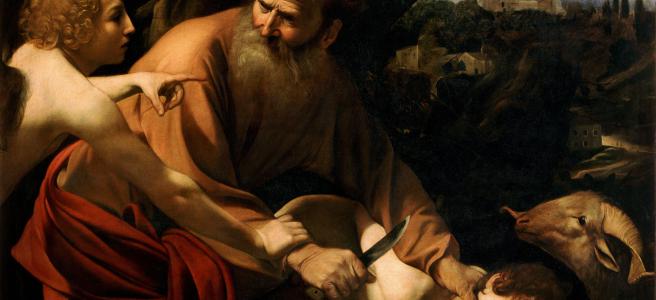
14 Jul Radical Orthodoxy: Theology, Philosophy, Politics
RADICAL ORTHODOXY: THEOLOGY, PHILOSOPHY, POLITICS is an online, international, peer-reviewed journal focused on exploring Christianity in the modern world in a manner that is both attentive to Christianity’s classic expressions and mindful of its far-reaching ramifications for all areas of modern life. The perspective of Radical Orthodoxy is that a Christian theology informed and sustained by ressourcement (“return to the sources,” to the roots), by the retrieval of the classic Christian tradition, can plumb the depths of the meaning and coherence of the Christian confession. Such a theology resists any neat dualism between the sacred and the secular—extending its domain of concern to all areas of culture. Such a breadth holds forth the prospect of understanding the world, our cultures, and our present age theologically—from the perspective of a coherent Christian view of the world.
‘Theology’ is taken to include theologies of all kinds, besides a predominant concern with the implications of orthodox Christian theology in particular. ‘Philosophy’ is intended in the most ample possible sense, to include all the various schools (Eastern and Western, Ancient, Medieval and Modern, Continental and Analytic) and disciplines. ‘Politics’ is taken to indicate not only the entire practical branch of philosophy but, more particularly, the ways in which such a Christian philosophical theology broadly-construed can be operative in the midst of situations, practices, relations, orderings of lived existence.
RADICAL ORTHODOXY: THEOLOGY, PHILOSOPHY, POLITICS intends to combine the academic and the current, the intellectual and the popular. To this end, the journal presents pieces of varying length (taking full advantage of the flexibility offered by the online format) while also publishing work of a more artistic or poetic mode—be it fiction, poetry, or art.
http://journal.radicalorthodoxy.org/
CENTRE OF PHILOSOPHY AND THEOLOGY
‘Every doctrine which does not reach the one thing necessary, every separated philosophy, will remain deceived by false appearances. It will be a doctrine, it will not be Philosophy’, (Maurice Blondel, 1861-1949)
The Centre of Theology and Philosophy is a research-led institution organised at the interstices of theology and philosophy. It is founded on the conviction that these two disciplines cannot be adequately understood or further developed, save with reference to each other. This is true in historical terms, since we cannot comprehend our Western cultural legacy, unless we acknowledge the interaction of the Hebraic and Hellenic traditions. It is also true conceptually, since reasoning is not fully separable from faith and hope, or conceptual reflection from revelatory disclosure. The reverse also holds, in either case.
The Centre is concerned with:
• The historical interaction between theology and philosophy.
• The current relation between the two disciplines
• Attempts to overcome the analytic/ Continental divide in philosophy
• The question of the status of ‘metaphysics’. Is the term used equivocally? Is it now at an end? Or have 20th Century attempts to have a post-metaphysical philosophy themselves come to an end?
• The construction of a rich Catholic humanism
http://theologyphilosophycentre.co.uk/
ILLUMINATIONS: THEORY AND RELIGION
Religion has a growing visibility in the world at large. Throughout the humanities there is a mounting realization that religion and culture lie so closely together that religion is an unavoidable and fundamental human reality. Consequently, the examination of religion and theology now stands at the centre of any questioning of our western identity, including the question of whether there is such a thing as ‘truth’.
ILLUMINATIONS aims both to reflect the diverse elements of these developments and, from them, to produce creative new syntheses. It is unique in exploring the new interaction between theology, philosophy, religious studies, political theory, and cultural studies. Despite the theoretical convergence of certain trends they often in practice do not come together. The aim of ILLUMINATIONS is to make this happen, and advance contemporary theoretical discussion.
SERIES EDITORS:
Catherine Pickstock, John Milbank and Graham Ward
BOOKS IN ILLUMINATIONS:
Sacrifice and Community: Jewish Offering and Christian Eucharist
by Matthew Levering
(Wiley-Blackwell, 2005)
The End of Work: Theological Critiques of Capitalism
by John Hughes
(Wiley-Blackwell, 2006)
The State of the University: Academic Knowledges and the Knowledge of God
by Stanley Hauerwas
(Wiley-Blackwell, 2007)
The Other Calling: Theology, Intellectual Vocation and Truth
by Andrew Shanks
(Wiley-Blackwell, 2007)
God and the Between
by William Desmond
(Wiley-Blackwell, 2008)
After Enlightenment: The Post-Secular Vision of J. G. Hamann
by John R. Betz
(Wiley-Blackwell, 2012)
The Theology of Food: Eating and the Eucharist
by Angel F. Méndez-Montoya
(Wiley-Blackwell, 2012)
Beyond Secular Order: The Representation of Being and the Representation of the People
by John Milbank
(Wiley-Blackwell, 2014)
No God, No Science? Theology, Cosmology, Biology
by Michael Hanby
(Wiley-Blackwell, 2016)

